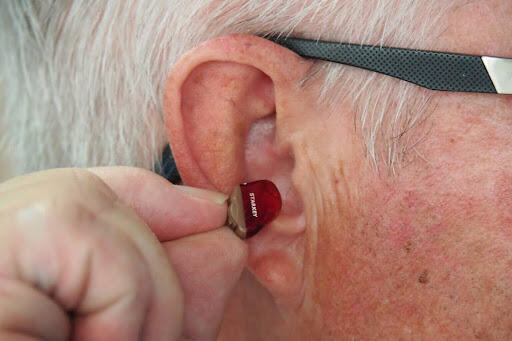
Why Regular Ear Checkups Are Important for Your Health
Have you ever considered how vital your ears are to your overall well-being? Often overlooked, regular ear checkups are crucial in maintaining your hearing and general health. This blog post highlights why regular ear checkups matter and what you stand to gain from making them a routine part of your healthcare regime. By the end, you'll understand how integral ear health is to your quality of life.
Understanding Ear Health
Your ears are complex organs that do more than hear sounds. Each section of the ear has its unique function, working together seamlessly to process sound waves and maintain balance. When any part of this intricate system malfunctions, it can lead to various health complications. Most people think about ear checkups only when they experience problems, but preventive care is critical. The seasoned audiologists behind Owl Hearing recommend getting your ears checked annually, similar to your dental visits. Regular checkups can help detect issues early before they escalate into more severe conditions.
-
Common Ear Issues
Ear infections, tinnitus, and hearing loss are common problems affecting your ear health. These conditions often start subtly, making it challenging to notice them initially. Regular ear checkups can help detect these issues early, allowing prompt treatment and better outcomes.
Why Ear Checkups Are Essential
Hearing loss often happens gradually, making it easy to ignore until it significantly affects your daily life. Regular ear checkups can catch hearing loss early, allowing for interventions like hearing aids or therapy. Ear infections are not just a childhood issue; adults can suffer from them, too. Through regular checkups, healthcare providers can detect signs of infection early, providing effective treatments to prevent long-term damage. Your ears are closely linked to other bodily functions. For example, balance issues can often be traced back to ear problems. Regular checkups can identify these interconnected health issues, providing comprehensive care and better health outcomes.
-
Emotional and Social Benefits
Regular ear checkups can help maintain one's hearing, ensuring one remains connected with one's loved ones. Good hearing contributes to your overall quality of life. Hearing loss and ear problems can lead to social isolation and depression. Regular ear checkups can help mitigate these risks by promptly addressing any issues, contributing to better mental health.
-
Financial Benefits
Regular ear checkups also help catch problems early, reducing the need for expensive treatments later. Many insurance plans cover regular ear checkups, making it easier for you to prioritize your ear health without worrying about the cost. Ear infections and hearing loss can lead to missed work days, affecting productivity and income. Regular checkups help keep you healthy and present, ensuring you take advantage of work opportunities.
The Process of an Ear Checkup
Your ear checkup starts with a consultation. This initial step helps in tailoring the examination to address your specific concerns. The physical examination involves using an otoscope to examine your ears. The healthcare provider conducts a thorough examination to help diagnose any immediate issues. If necessary, the healthcare provider may conduct hearing tests. The results can guide further treatment or interventions.
-
The Role of Technology in Ear Health
Advancements in technology have made ear checkups more accurate and less invasive. Modern diagnostic tools can detect problems that were previously hard to identify, making early intervention more effective. While this doesn't replace a physical examination, it can be a convenient first step in addressing your ear health concerns. Technological advancements have also improved the efficacy of hearing aids and cochlear implants. Regular checkups ensure these devices function correctly and appropriately adjust to your needs.
-
How to Prepare for an Ear Checkup
Before your appointment:
- Gather information about your medical history, including previous ear issues, medications, and allergies.
- Make a list of any symptoms you've been experiencing, no matter how minor they seem. This will help guide the examination and address all your concerns.
- If you're anxious about the checkup, consider bringing a friend or family member for support.
They can also help you remember important information and ask questions you might forget.
-
What to Do After Your Checkup
You may need follow-up appointments for further tests or treatments, depending on the findings. Make sure to schedule these promptly to ensure continuous care. Your healthcare provider will likely give you tips for maintaining your ear health at home. Follow these recommendations to prevent future issues and keep your ears in top condition. Keep a record of your checkup results and any treatments you receive. This information will be helpful for future appointments and for tracking your ear health over time.
Your ear health is more important than you might think. Regular ear checkups can catch problems early, improve overall health, and enhance quality of life. Don't wait until you have a problem to see a healthcare provider. Make ear checkups a regular part of your healthcare routine. You'll be glad you did. Consider scheduling an appointment with a specialist for more detailed information and personalized advice. Your ears—and your overall health—will thank you.